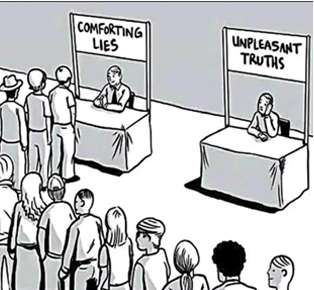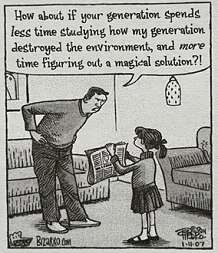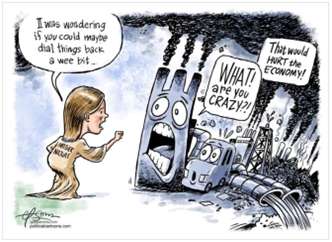
Climate Change – Are We Beyond Hope
Climate Change – Are We Beyond Hope?
“When we get our story wrong, we get our future wrong” – David Korten
There is a saying that a pessimist is an optimist with years of experience. I have been following a variety of environmental issues for over 45 years now and this saying neatly sums up the degree of my frustration concerning the lack of progress on crucial environmental matters. For me – it’s also personal. I have grandchildren and I worry greatly about the future they will face.
AN ENGINEERED FAILURE
I acknowledge the negative tone of many of my articles. I wish it were not so. But the reality is indeed dire, and this must be stated clearly. It’s of no value to gloss over the facts. The past few years have seen a drumbeat of climate-driven disasters all over the world. Climate scientists are using words or phrases including – ‘scary’, ‘unprecedented’, ‘unstoppable’, ‘beyond extreme’, “time is running out’ and ‘frightening tipping points’ – just to name a few. Even more unsettling is that social scientists seem as, or even more alarmed in terms of assessing the upheaval that is already occurring and will undoubtedly get worse.
One role of science communication is to counteract willful ignorance. Science often develops inconvenient facts. Science communication takes this knowledge, translating the complexity into everyday language. If the message is inconvenient, unpalatable, disturbing, or even downright scary, the story still requires telling. This is what I attempt to do with my blogs, joining the chorus of thousands of other science communicators who are sounding the alarm of a catastrophic future if carbon emissions continue their current trajectory.
From what I can ascertain, we (a majority of humanity) are in a collective delusion about our current and impending impact on life on this planet. As such, science communication is not enough. This is not a matter of rationality. Proper science communication is continually obfuscated by false information. The fossil fuel industry has known since the 1970s that their products cause climate change but took the course of denial and delay by seeding misinformation fed to the public through a variety of “think’ tanks using phony science. Social media greatly aided these efforts.
The failure to halt climate change has been engineered from day one. We know that the licence granted to fossil fuel companies by 50 years of failure has enabled them to make stupendous profits – estimated to be 2.5 billion dollars per day (averaged over 50 years and corrected to today’s dollar). This kind of money provides big industry the power over every political decision they require. Even more perverse, -governments continue to supplement this financial grab by granting oil and gas companies 64 billion dollars per year in public subsidies.
So – while I acknowledge the negative tone of my articles, I don’t apologize for that. My frustration is warranted. This year’s CoP (Conference of the Parties) conference in Egypt – confirms this. When the history of the climate crisis is written, in whatever world awaits us, CoP 27 will be seen as the moment when the dream of keeping global heating below 1.5C died. Little wonder, there were over 600 fossil fuel lobbyists attending, more than the delegates of any single country and more than the delegates from all African countries. The words “fossil fuels” do not even appear in the final text. https://www.theguardian.com/environment/2022/nov/20/world-still-on-brink-of-climate-catastrophe-after-cop27-deal
For over 50 years we have all been witnessing an engineered failure and even paying into it. But – we are not beyond hope. In fact, it is impossible to function without hope. The fact is, the 1.5C target is not a threshold beyond which all hope also dies.
RAYS OF HOPE
“Hope is stubborn. It exists within us at the cellular level and works up from there, as the urge to live. So, hope will persist. The question is, can we put it to use.” Kim Stanley Robinson.
Despite the continued force exerted by powerful lobbies funded by big money, there are rays of hope around the world.
- The past decade has been one of slow but steady progress with carbon emissions starting to flatten. Countries representing 88% of global emissions have announced plans to get to net zero in the latter half of the 21st century
- CoP27 did achieve something. The new loss and damage fundpromises to finance the rebuilding of poorer, vulnerable countries hit by increasingly severe climate impacts that they have done little to cause. It is a long overdue acknowledgment of the moral responsibility the big polluters have for the climate emergency.
- Another reason to be hopeful is that clean energy became cheaper much faster than expected. The cost of both solar energy and batteries fell tenfold in the last 10 years and the cost of wind energy by two-thirds. Solar is the cheapest form of new electricity to build in much of the world today, and electric vehicles now represent 13% of new vehicle sales globally.
- Politically – Brazil – The defeat of right-wing president – Jair Bolsonaro means a return to policies to save the Amazon or at least the pillage that Bolsonaro enabled. As well as containing 25% of the world’s terrestrial biodiversity, the Amazon plays a crucial global role in storing billions of tons of carbon and releasing billions of tons of water each year.
- Politically – USA – the mid-term elections did not result in a projected ‘red wave’ that would have given the Republican Party the pollical power to potentially reverse the progress that the current administration has initiated on the climate front. Sadly – conservative parties around the world seem to be tone deaf on the urgency of planetary destruction. This applies to Canada as well.
- Price on carbon – As of 2020, sixty-four carbon pricing (carbon tax or cap and trade) initiatives have been implemented in forty-six countries worldwide, representing over 22% of global emissions. British Columbia was one of the first jurisdictions to introduce a carbon tax (in 2008). Since then, carbon emissions decreased by more than 17% in just 5 years, personal income tax dropped to the lowest in Canada and the BC economy performed well. Carbon pricing works.
- Advocacy – Collective action is a global imperative. There have been many mega projects cancelled or put on hold due to collective action. Indigenous leaders are now realizing some long-overdue credit and recognition. Moreover, well-informed young people such as Greta Thunberg, Delany Reynolds, and Xiuhtezcati Martinez are often the adults in the room and have been turning the climate crisis into humanity’s most unifying ethical moment. It was unfortunate that the most recent CoP was in Egypt as the opportunity for mass protests was prevented by the authoritarian government. The protests help drive the process.
- Legal action – is increasingly effective, using the courts to hold governments and industry to account – much like what was achieved to fight ‘Big Tobacco’. Recently, climate change activists secured a major legal victory against oil giant Royal Dutch Shell.
- Grass roots efforts – Energy poverty is real – 770 million people lacked access to any form of electricity as of 2019. Solar Sister is a non-profit whose goal is to support rural women in creating their own energy businesses. With sufficient funding an organization like this can help rural areas to ‘leapfrog’ to sustainable electricity as opposed to relying on the traditional business as usual model of fossil fuel-based electricity. https://solarsister.org

These are some examples that can give us hope. These kinds of efforts must now be exponentially enhanced with monumental conviction. The deeply flawed economic theory that has been driving this disaster must be radically altered. Everyone has a role to play. I highly recommend watching the following 15-minute video. It was made just prior to the most recent CoP in Egypt.

